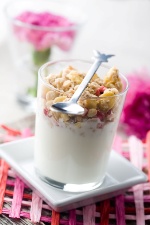 It is very important to eat healthy. How’s that for a shocking statement? Well, let’s toss an important health breakthrough into the equation here for a moment. It might give us pause about consuming meals high in fat. One single high-fat meal can cause physical stress on the body.
It is very important to eat healthy. How’s that for a shocking statement? Well, let’s toss an important health breakthrough into the equation here for a moment. It might give us pause about consuming meals high in fat. One single high-fat meal can cause physical stress on the body.
The research team was reportedly “shocked” by their own results, which came after a study comparing high-fat meals to low-fat meals. Incredibly, even one dinner high in fat leaves the heart prone to the effects of stress. Consider a breakfast many of us enjoy each day: sausages, hash browns, and eggs. This right there, before the body has barely woken up, can spike blood pressure and damage blood vessels.
The study proved that when it comes to high sugar and high fat, the latter is far worse for one’s health. In two groups of people, researchers compared two styles of breakfast to see what the stress response would be. (Not to pick on fast food, but…come on.)
1. High-fat meal (from McDonalds):
— “Egg McMuffin”
— “Sausage McMuffin”
— Hash brown patties (two)
This contained 820 calories, 42 g of fat (17 g saturated), and 270 mg of cholesterol.
2. Low-fat meal
— “Kellogg’s Frosted Flakes” (skim milk)
— Yogurt (fat-free)
— Orange juice
— “Froot Loops” fruit bar
This had to contain lots of sugar to boost the calorie count to 830; it also included 15 mg of cholesterol.
The study included 30 young adults who fasted for 10 hours, and then ate one of the two meals. A week later, they ate the other meal. After each session, they went through basic mental and physical stress tests. These included a stressful math test, a public speaking activity, and holding an arm in ice water. Their heart responses were measured.
It didn’t matter what task, the hearts of those eating high-fat meals bore the brunt of these stress tests. Ironically, people who are stressed out often cope by a quick, satisfying high-fat meal (often fast food). But in fact, this choice has made the stress worse.
An ideal breakfast, for the record, would include fiber, low-fat dairy, and fruit.
RECOMMENDED: Preventing obesity starts with breakfast
